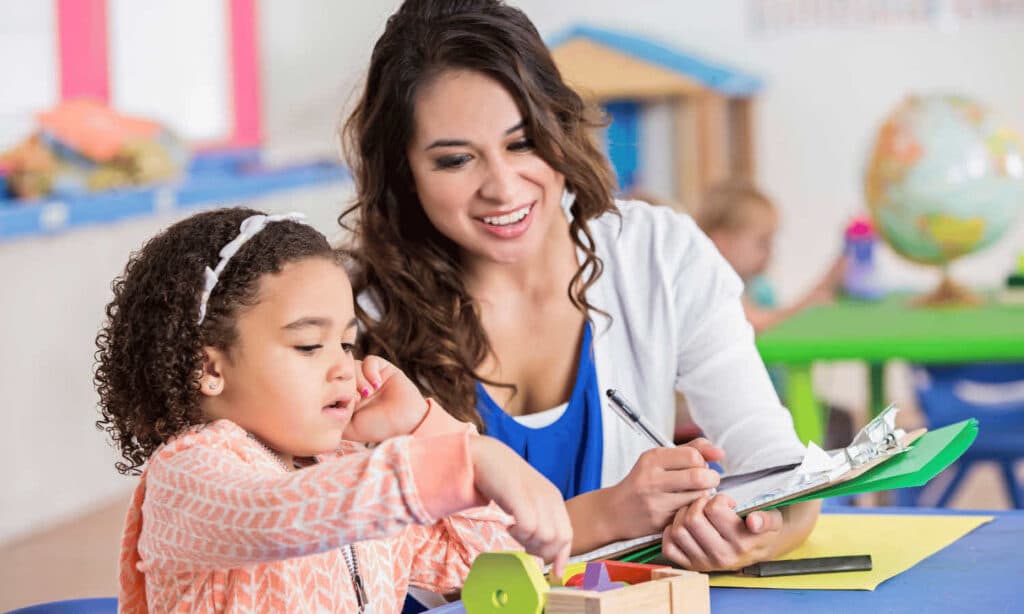At the Sutcliffe Clinic, we define the “whole child” approach as striving to achieve a holistic understanding of your child. We acknowledge the many traits and components that comprise their personality.
Rather than simply addressing the challenges or disorders your child might be struggling with, we create a comprehensive picture. One of their strengths and vulnerabilities. To accomplish this, we observe them and gather the perspectives of others in their life.
This process includes psychological and educational testing, assessment of your child’s social-emotional development, and observation of their interpersonal skills.
By focusing on how your child engages with the world around them, we can better understand how to aid your child in genuinely thriving.

HOW WE’RE DIFFERENT
In more traditional wellness clinics, many patients are reduced to a yes or no question. The sole focus of their experience is getting a diagnosis. While a diagnosis is helpful, we acknowledge the bigger picture of what’s happening in a patient’s life.
For example, a child may be exhibiting hyperactivity and other symptoms of ADHD. But after digging deeper, we could see that their struggles with relationships in school provoke their behavior.
Rather than going into the process with a bias toward finding a label, we take the time to examine circumstances, such as family dynamics and education experiences. This allows us to create a comprehensive roadmap to represent better and aid each individual.
HOW WE ASSESS
To gain a holistic understanding of your child, we observe their behavior not only alone but also with other people and circumstances involved.
When a new family arrives at the clinic, the first step in our process is a parent intake meeting. Here, we get the parents’ perspective on what challenges the child is facing. Typically, your child will not be present for this meeting. However, they can if they’re a teen and want to attend.
The goal of having a parent-centered meeting is to allow parents to speak openly. They can share information without worrying about how their child will interpret their perspective.
Next, we get to know the child by observing them in their natural environment, such as their home, school, or daycare. This allows us to understand how the child functions in their day-to-day life.
The observation is then followed by a clinic assessment. Typically, this is play-based and targeted at a developmentally appropriate level for the child.
NEXT STEPS
A key part of our whole child model at the clinic is offering help beyond a diagnosis. After observing a child, our assessment team will circle back to the parents. The team will share a preliminary roadmap detailing the information we’ve collected.
There may be more data or a certain type of assessment we think your child would benefit from. In this case, we can refer you to a different team to dive deeper into those specific areas. This could mean booking a psychological testing appointment, working with an educational therapist, or meeting a professional specializing in your child’s needs.
Using our information, our clinicians can also begin to support you with a management plan.

THE FOUR PILLARS
Our treatment plans are based on four central pillars: environment, skill-building, wellness, and medication. Treating your child from all of these lenses allows us to see the bigger picture.
Additionally, we can take into account their strengths and vulnerabilities. We then respond with a variety of strategies that are designed to serve them specifically.
ENVIRONMENT
One part of a child’s treatment is addressing the various environments they are a part of. Whether it’s home, school, or an extracurricular activity, kids move through many different settings, even over a single day.
To have an impact on an individual’s life, it’s critical to observe and respond to the environments in which they are present. One of the first places to examine is the home environment. Certain changes to your child’s space at home might make them feel more secure and safe. This can benefit them even outside of the home.
Additionally, school meetings are a common part of our treatment process. This allows us to help advocate for your child’s needs and create an environment that’s appropriate yet comfortable for them. Part of this process can include requesting school accommodations.
Common forms of accommodations can change the way information is presented to your child. They allow your child to demonstrate understanding differently, or provide them with a different setting to complete tests or assignments.
Our educational support, such as an individualized education program (IOP) or 504 plan, can provide these modifications, especially if your child has a diagnosis like ADHD, autism, or anxiety.
SKILL-BUILDING
Focusing on building new skills in the clinic can allow kids to engage socially, focus in school more easily, and self-regulate when faced with overwhelming emotions. These skills can be taught in various ways, depending on your child’s age, goals, and specific needs. Talk therapy can allow kids to unpack their emotions and discover skills that are relevant to the challenges they’re facing at the moment.
Behavioral therapies such as applied behavior analysis (ABA) or pivotal response treatment (PRT) can help kids with autism with communication and social connection, while remaining motivation-based and therefore interesting to them. Educational therapy can help with a variety of learning issues. These include difficulty reading, lack of organization, or challenges with study habits.
Parents are a key part of the skill-building process, as children’s behaviors are heavily influenced by their parents’ actions. Parents are frequently involved in the various therapies we offer since especially with young kids, including the family can allow everyone to better understand and respond to the challenges that arise.
We also provide parent training services, which help bring the goals from therapy into other parts of your child’s life. By doing so, they’re able to adapt the skills they learn to function in a variety of situations they encounter. Plus, having a parent understand what they’re facing can help your child feel less alone when working through their challenges.
WELLNESS
Wellness, both physical and mental, depends on a variety of factors. One of the areas we look into most frequently is exercise, as physical activity can have a huge impact on an individual’s physical health as well as their mental well-being. This is an especially effective tool when treating a child that struggles with focus, as studies show that exercise benefits working memory and attention.
Furthermore, diet is another powerful way to address behavioral or mental symptoms. Neurodevelopmental conditions such as autism can change or impair metabolic function, and addressing this by changing one’s diet can improve general symptoms. We also emphasize mindfulness as a tool for managing mental health, especially when it comes to self-regulating and coping with big emotions.
MEDICATION
Medication can be one of the most worrying suggestions we provide. Parents often have concerns about potential side effects as well as the risk of dependency. However, it’s only one of our four pillars, and is no more important of a tool than any of the other pillars.
Our goal is to provide your family members with the information and insight you need to make an informed decision. We want to empower you by giving you the resources you need to feel in control of whatever challenges you’re facing.

Takeaways
The whole child approach is truly the Sutcliffe Clinic’s core philosophy when it comes to approaching treatment for any patient. Our focus on seeing the whole picture allows for more individualized and therefore effective forms of treatment. And our multidisciplinary team combines a variety of insightful perspectives to tackle any challenge from all sides.
We hope that your family can find a good fit here with us! For more information, please contact us at info@sutcliffedbp.com or give us a call at 650-941-1698.
